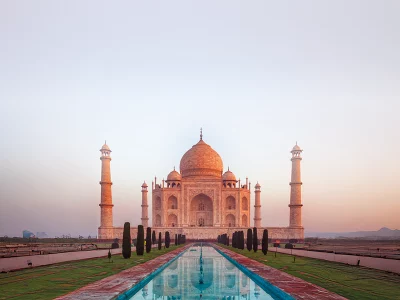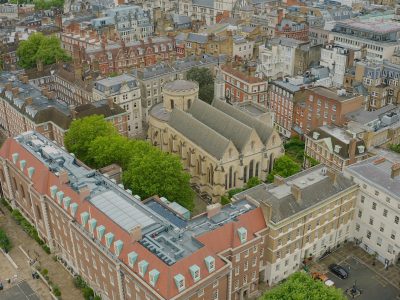

India (2)
By Sian Beaen
Nothing quite prepares you for India: its warmth, its hospitality, its vibrancy or its volume. The court system is no different. Think queuing for security with the monkeys and buying your court supplies from the High Court kiosk that sells everything from practitioner texts to the most bejewelled cufflinks. But, more than that, think ‘sharpen your elbows’ and abandon that British sense of awkwardness. The courtrooms are packed wall to wall with advocates, most of them junior, acting as an army of support to their senior Head of Chambers. The cases come at an attrition rate I have never seen before.
The court hearings are listed on an almost airport-style departure board, so you can track what is happening in each courtroom. This allows you to sit around in the canteen with a cold coffee and catch up with the juniors from other chambers. One of my big takeaways from India is that you would recognise the Bar anywhere. That sense of camaraderie, the incestuous nature of everyone knowing everyone, the slight hero worship when a big name walks into the room. It doesn’t matter where it is, the Bar is the Bar all over the world. When it’s your case, forget the niceties, you force your way into a court as full as the Northern line at Clapham Common on a Monday morning and you push your way to the judge. As I was told repeatedly, when you have a population of over a billion people, there is a lot of demand and a lot to do, and you just have to roll your sleeves up and get on with it. The courts are extremely busy, the workload is high, the turnaround is quick and the pressure on these young advocates is relentless. From what I can see, they handle it with style.
Unlike in the UK, where the goal is to be taken on, here, the goal is to set up your own practice. I got to watch this sort of reverse-tenancy rite of passage for one of the juniors, Advocate Garvil Singh. Again, the support of the Bar was so apparent, with cake and speeches from his mentor and now former boss, as he set off on this new adventure.

Some of the differences I managed to observe were the legal ones. In India, the blurring between family and criminal jurisdictions is common. I was introduced to the concept of the presumption of a ‘dowry death’, something that is culturally common in India but unheard of in the UK. I witnessed criminal cases being settled by mediation, much more akin to a family approach. Additionally, it was explained to me that the Indian government is the top litigator in the country. Unlike in the UK, where we are constantly in battle with branches of the government to fund justice, in India, the government is the biggest client, supporting somewhat of a legal boom.
I was blessed to be in Delhi for Diwali. The court holidays provided ample opportunity to explore the history and see the incredible architecture that India has to offer. In Delhi, you are never more than an auto ride away from something breathtaking. The other great part of Diwali is the parties. An especially memorable one came from Senior Advocate Mr Singh, whose rooftop bar and jubilant card games were a particular highlight. Perhaps unsurprisingly, I had no victories to share. My co-scholar Toby was either far more skilled or just much more fortunate!
I spent Diwali day with the amazing Advocate Sanskriti Shakuntala-Gupta and her family, who informed me that “in India, no one does festivals alone”. Sans introduced me to my first Puja, took me to watch her address Indian national television on the importance of representation for female advocates on the Bar council and treated me like a sister throughout my time stationed with her chambers. I will forever be indebted to her kindness.
I wish to extend a particular thanks to everyone at the chambers of Senior Advocate Vikas Pahwa and to all those involved in organising at the Hingorani Foundation. I spent most of my placement with Mr Pahwa’s chambers, who were the most welcoming and inclusive people you could ever hope to meet. Mr Pahwa is an absolute legend of the profession. His knowledge is unrivalled and his advocacy formidable, and yet, he is a kind and devoted mentor who assisted me greatly in my time spent with him. I was also afforded the opportunity to have lunch with a judge, which was all facilitated by another fantastic junior, Advocate Nancy Shamim. This was another once-in-a-lifetime experience that I feel very blessed to have had.
India is a place that gets under your skin, but it is the people that I met and the friendships I have made that I shall cherish most about my time as a Pegasus Scholar! That, and the fact that my name means ‘pride’ in Hindi.
Siân Beaven
Pump Court Chambers
